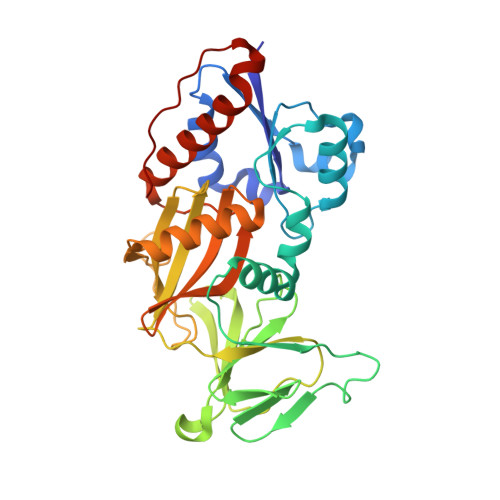Synthesis of Densely Phosphorylated Bis-1,5-Diphospho-myo-Inositol Tetrakisphosphate and its Enantiomer by Bidirectional P-Anhydride Formation.
Capolicchio, S., Wang, H., Thakor, D.T., Shears, S.B., Jessen, H.J.(2014) Angew Chem Int Ed Engl 53: 9508-9511
- PubMed: 25044992
- DOI: https://doi.org/10.1002/anie.201404398
- Primary Citation of Related Structures:
4Q4C, 4Q4D - PubMed Abstract:
The ubiquitous mammalian signaling molecule bis-diphosphoinositol tetrakisphosphate (1,5-(PP)2 -myo-InsP4 , or InsP8 ) displays the most congested three-dimensional array of phosphate groups found in nature. The high charge density, the accumulation of unstable P-anhydrides and P-esters, the lack of UV absorbance, and low levels of optical rotation constitute severe obstacles to its synthesis, characterization, and purification. Herein, we describe the first procedure for the synthesis of enantiopure 1,5-(PP)2 -myo-InsP4 and 3,5-(PP)2 -myo-InsP4 utilizing a C2 -symmetric P-amidite for desymmetrization and concomitant phosphitylation followed by a one-pot bidirectional P-anhydride-forming reaction that combines sixteen chemical transformations with high efficiency. The configuration of these materials is unambiguously shown by subsequent X-ray analyses of both enantiomers after being individually soaked into crystals of the kinase domain of human diphosphoinositol pentakisphosphate kinase 2.
Organizational Affiliation:
Department of Chemistry, University of Zürich (UZH), Winterthurerstrasse 190, 8057 Zürich (Switzerland).

















